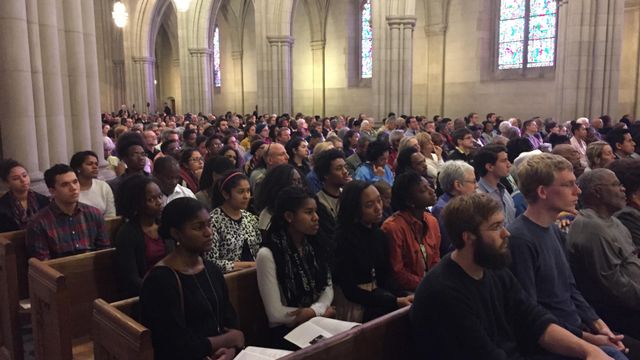Barber: 'Moral Monday' movement similar to civil rights movement
North Carolina NAACP President William Barber used the pulpit at Duke University Chapel on Sunday to equate Martin Luther King Jr.'s civil rights efforts with the "Moral Monday" movement, saying the push for social equality is still needed.
Posted — Updated"I believe we are possibly in the embryonic stages of a third reconstruction in America," said Barber, the keynote speaker at Duke’s MLK program. "And if we come together even the more, if we return to our fortresses as prisoners of hope, there's no telling what God is going to do."
More than 1,000 people were arrested during the weekly peaceful protests at the General Assembly over the past two years, where Barber and others have demonstrated their dissatisfaction with the Republican-led legislature.
Education funding, voting rights and the state's refusal to expand its Medicaid health insurance program for the poor were among many causes supporters turned out for. The protests, which involved signs and chants, would start outside the Legislative Building and end in the courtyard area outside the House and Senate chambers. Weekly turnout ranged from a few hundred to a few thousand.
Even with the new rules, the protests have the potential to make a difference, said Reginald Hodges of Durham, who attended Sunday’s event.
“If everyone comes together, white, black, Jews, Islam, Republican, Democrat, that everyone coming together can make a difference,” he said. “People will have to listen to what we say.”
With lawmakers back in session, Barber said a mass "moral march" is in the works for February.
“Our agenda is clear,” he said. “Our partner organizations are more committed than ever.”
• Credits
Copyright 2024 by Capitol Broadcasting Company. All rights reserved. This material may not be published, broadcast, rewritten or redistributed.






